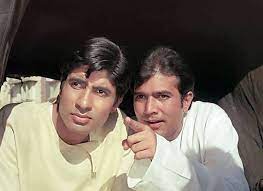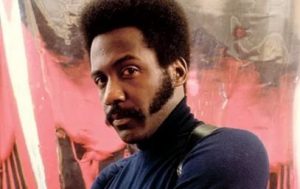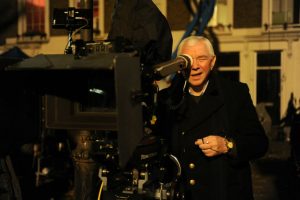Amitabh Bachchan turned 80 on Tuesday, but you would not know it as he continues to work tirelessly in films and television, arguably the biggest Bollywood star of the last five decades. But he was not the first “superstar.” That epithet was first used to describe Rajesh Khanna, with whom Bachchan shared a great rivalry once.
In 1969, Rajesh Khanna, with his energetic acting and a million dollar smile, blasted his way to the top of Bollywood singing Mere Sapnon ki Rani” in Aradhana. He filled a gap. Dilip Kumar, Raj Kapoor, and even Rajinder Kumar were pushing past their prime. Shammi Kapoor wasn’t slim and brisk anymore and Shashi Kapoor and Dharmendra were popular actors but not quite at the same level.
Rajesh Khanna was unstoppable, delivering hit after hit in the next two years, cementing his superstardom with films like Kati Patang (1970), Safar (1970) and Haathi mere saathi (1971).
Then came Anand, director Hrishikesh Mukherjee’s poignant film about an ever-smiling eponymous cancer patient played by Rajesh Khanna. Cast in the supporting role of a Bengali doctor whom Anand fondly calls “Babu Moshai”, was tall, lanky Amitabh Bachchan, a struggling young actor who found an opportunity to work with the superstar. Anand was scripted for Rajesh Khanna but the young Bachchan caught the eye too.
Then came Bawarchi (1972) in which Rajesh Khanna played the lead and Amitabh Bachchan lent his voice as commentator. During filming, Khanna reportedly casually asked Jaya Bachchan (then Jaya Bhaduri) to not spend time with Amitabh as he had no future. Bhaduri, then a top actress, is said to have retorted saying that one day Amitabh would rule the industry.
Her statement was prophetic, she also married the man. They appeared together in Zanjeer (1973), an action film with power-packed dialogues and an engaging story by Salim-Javed. Amitabh Bachchan was brilliant and Zanjeer a block-buster hit.
Rajesh Khanna, on the other hand, was delivering flops regularly now. One superstar was on the descent and the other was rising.
Their titanic clash was full of Bollywood melodrama and poignant dialogues in Hrishikesh Mukherjee’s Namak Haram (1973). The film featured Bachchan as a billionaire and Khanna as his close middle-class friend. Khanna’s character is sent initially as a fifth-columnist in the disguise of a worker, but he sees the hardships and plight of the poor and turns against the establishment and, his friend. Rajesh Khanna insisted that his character would die and not Bachchan’s.
But while Rajesh was the lead, it was Amitabh who towered in every scene. Rajesh Khanna himself understood it when he reportedly told director Mukherjee during the film’s premiere at Mumbai’s Liberty hall, “Here is the superstar of tomorrow”.
Bachchan’s rise and Rajesh’s fall overlapped and Rajesh Khanna took it to heart. A combination of the changing tastes of the audience and the actor’s inability to get out of his comfort zone was seen to have caused his downfall. A frustrated Rajesh Khanna reportedly told God, “Don’t test my patience to such an extent that I question your very existence”.
For Amitabh, success brought with it the stereotype of the “angry young man.” In film after film like Deewar (1975), Sholay (1975), Amar Akbar Anthony (1977), Trishul (1978), Kaala Pathar (1979) Kaalia (1981) he played the smouldering action hero. “I smiled each time he slipped because he made the same mistakes that I once made,” a melancholic Rajesh Khanna later said.
However, by the end of 1980s, with fierce competitiveness and the struggle for the throne long gone, what remained was generous praise and mutual respect for each other. In their first interview together in 1990, they were surprisingly candid.
Perhaps, the shining point of their much talked about relationship came when Amitabh Bachchan presented Rajesh Khanna with the lifetime achievement award at the IIFA (International Indian Film Academy) awards ceremony in 2009. Amitabh Bachchan called upon the stage “the first superstar of Indian cinema” and Rajesh Khanna profusely thanked “Babu Moshai.”
When Rajesh Khanna died in 2012, Amitabh Bachchan wrote a tribute on his blog. “Soon after I was being cast opposite him in ‘Anand’. This was like a miracle, God’s own blessing and one that gave me ‘reverse respect’. The moment that anyone came to know that I was working with THE Rajesh Khanna, my importance grew. And I gloated in its wake,” Bachchan wrote.







